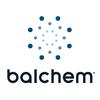The Effect of Sodium (Na), Potassium (K) and Magnesium (Mg) Supplementation on the Milk Production of Dairy Cows during Summer Environment
Published: April 16, 2013
Source : Umesh Sontakke and Bisitha K.S. (Dairy Cattle Nutrition Division, National Dairy Research Institute, India).
Summary
Thermal stress resulting in increased energy maintenance requirements and reduced growth rates, milk yields and reproductive performance can represent sizable economic losses to producers of intensively managed livestock. Sodium (Na) and potassium (K) are important in the maintenance of water balance, ion balance and the acid-base status of heat-stressed cows. Requirements for specific nutrients such as Na, K and Mg increses during thermal stress compared to thermoneutral conditions. Therefore, supplementation of Na, K and Mg during summer environment improved milk yield in dairy animals.
INTRODUCTION
In tropical and sub-tropical pasture-based dairy systems, a combination of high air temperatures and high humidity from late spring to early autumn leads to heat stress in lactating cows. Livestock in warm climates have to depend largely upon forage to fulfill their mineral requirements. Forages rarely satisfy all of the needed mineral requirements of grazing livestock. It has been reported that mineral concentrations in both soils and plants affect the mineral status of grazing livestock. Dairy cattle generate heat from two sources: the environmental temperature and humidity, and their internal body metabolism and digestion. Heat stress lowers dry matter intake (Since fiber undergoes more fermentation in the rumen than grain, it increases body temperature more), especially forage intake, making it difficult to meet energy needs. Requirements for specific nutrients for milk production, such as Na and K, appear to differ during thermal stress compared to thermoneutral conditions. Sodium along with chlorine and potassium in proper concentrations and balance, are indispensable for a number of important physiologic functions. Electrolyte minerals, sodium (Na) and potassium (K) are important in the maintenance of water balance, ion balance and the acid-base status of heat-stressed cows. The Na-K pump is essential for all eukaryotic cells, enabling transport of glucose, amino acids, and phosphate into cells, and hydrogen, calcium, bicarbonate, potassium, and chloride ions out of cells.
SODIUM (Na)
Most natural grains and protein concentrates are fairly low in sodium. Feeds of animal origin usually contains relatively high concentration of sodium. Sodium and chloride are the major ions found in extracellular fluids. Plasma sodium concentration, normally maintained within narrow limits, is the primary determinant of alterations in plasma tonicity and is important in the maintenance of acid-base balance in body fluids. Typical concentrations of sodium in blood plasma are 150meq/L and 160 to 180 meq/L in saliva. Concentration in milk is between 25 and 30 meq/L ; it is increased during mastitis when serum leaks into milk. Generally, of the sodium present in the body, approximately 45% is present in extracellular fluid, 10% in intracellular fluid, and the remainder is integral to bone structure and is not available. Aldosterone is a steroid hormone secreted by the adrenal cortex that causes resorption of sodium and, concomitantly, a large flux of water at the kidney. Acute thermal stress results in increasing concentrations of aldosterone in nonruminants and decreasing concentrations during chronic thermal stress in ruminants.
Lack of the sodium lowers the utilization of digested protein and energy. Symptoms of sodium deficiency leads to sign of: slow growth, softening of bones, keratinization of the corneal epithelium, impotency in the male, delayed sexual maturity, impaired estrus rhythm, decreased cardiac out put. Additional Na is also required by heat stressed cows to compensate for losses due to an increased rate of sweating. Sodium chloride (NaCl) is cheap supplement that contains high levels of Na (39.3%) which potentially could improve the milk production of grazing cows during warm, humid conditions. One rationale for increasing dietary Na concentration is that urine Na excretion increases when lactating cows are under heat stress due to an increase in bicarbonate ion (HCO3-) excretion caused by respiratory alkalosis. Levels of salt in the diet over 0.5% usually cause increased water consumption and watery faeces.
Enhanced lactational performance of heat-stressed lactating cows fed high concentrate (60 to 70%) diets by providing .85 to 1.0% dietary sodium bicarbonate, presumably buffering the rumen and maintaining a higher ruminal pH. In thermally stressed ruminants fed sodium bicarbonate (to buffer the rumen), dietary addition also of an acetogenic agent might assist in maintaining blood acid-base homeostasis. The daily maintenance requirement for absorbed sodium for growing cattle and non-lactating pregnant cows was set at 1.5 grams/100 kg body weight.
POTASSIUM (K)
Potassium is the third most abundant mineral element in the body. The loss of potassium increases blood acidity. 90% of the body’s potassium is retained within cells and, in particular, in skeletal muscle (70-75%). It is the major intracellular electrolyte with concentrations in the range of 150 to 155 meq/L. Potassium is involved in osmotic pressure and acid-base regulation, water balance, nerve impulse transmission, muscle contraction, oxygen and carbon dioxide transport; in phosphorylation of creatine, pyruvate kinase activity,as an activator or co-factor in many enzymatic reactions, in cellular uptake of amino acids and synthesis of protein, carbohydrate metabolism, and in maintenance of normal cardiac and renal tissue.
Potassium deficiency is not usually observed in farm animals, as the plant products contains 10 to 20 times more of this element than sodium. Heat-stressed cows lose a lot of potassium and they can become potassium deficient. Reductions in serum and urine K concentrations have been related to depressed aldosterone secretion and increased need for K in sweat. During thermal stress, lactating dairy cows were extremely resilient to challenges to acid-base balance by dietary or environmental stressors. Milk is a major source of potassium elimination from the body and since the potassium content of most grains is relatively low, feeding high concentrate diets could lead to a possible deficiency problem and milk yield may decrease. Furthermore, heat stressed cow's losses more K in sweat than cows that are not heat stressed, therefore, potential k deficiency may be implicated in lower milk production during hyperthermia.
Dietary Cation-Anion Difference (DCAD)
Researchers have found that they can increase blood pH by increasing the dietary cation-anion difference (DCAD). This is the difference between the amounts of positively charged cations (especially sodium and potassium) in the diet and the negatively charged anions (especially chloride and sulfur) in the diet. The dietary cation-anion difference (DCAD, Na + K - Cl or Na + K – Cl- S) contributes to maintain the acid-base status of cows in hot weather. DMI increased linearly with increasing cation content from 120 to 464 mEq/kg DM, while Na or K was equally effective as a cation source. Raising DCAD increases the ability of the cow’s blood to buffer acids and this raises blood pH (decreasing acidity). Researchers have found positive milk production responses when they have raised DCAD to 35-45 meq/100 g DM. Generally, it will require 1.6-1.8% dietary potassium, 0.75-1 pound (0.34-0.45 kg) of added buffer, and 0.40% sodium to significantly increase DCAD. Chloride levels also need to be controlled (0.40%).
MAGNESIUM (Mg)
Magnesium is essential for bone growth and maintenance, the nervous system, and body enzymes. Functions of Mg includes (1) It helps maintain normal muscle and nerve function, keeps heart rhythm steady, supports a healthy immune system, and keeps bones strong. (2) Magnesium also helps regulate blood sugar levels, promotes normal blood pressure, and is known to be involved in energy metabolism and protein synthesis. (3) It is regarded as an activator of various enzyme transferring phosphate from ATP to ADP. When rumen pH is above 6.5, magnesium absorption is reduced. The high potassium content, high rumen ammonia from soluble protein, and low starch levels often found with pasture-based diets all tend to increase rumen pH. Magnesium (or grass) tetany is a magnesium deficiency commonly seen when cows are primarily fed grass pasture which is growing rapidly. The signs of magnesium tetany (deficiency) include, nervousness, restlessness, twitching of muscles, grinding of the teeth, and profuse salivation. Magnesium deficiency is prevented by: (1) Magnesium supplementation in animal diet : MgO, MgCO3 and MgSO4. (2) Mg blocks or mineral salts or mineral salt mixture can also be given. Epsom salt added to drinking water is also useful. (3) Mg boluses may also be useful in reducing grass tetany. (4) Salt lick of 10 parts of MgSO4 and calcium diphosphate with 80 parts of salt will help in prevention. Also a mixture of two parts of MgO to one part salt as the only salt is effective. Magnesium oxide (MgO) was added, thus increasing the Mg concentration from 0.25% to 0.44%, the milk yield of heat-stressed cows increased by 9.8%.
Related topics:
Authors:

Recommend
Comment
Share
28 de septiembre de 2013
this is very informative article.the ions discussed in this articles are very necessary for those cows which are high yields.to combat heat stress in hot summer in Punjab,Pakistan.i personally made a feed supplement" BIONAK-4," having all these ions in this product has the most beneficial effects on performance of cross cows in summer this product advocate the anther's work.
DR.MUHAMMAD SHAFIQUE,DAIRY CONSULTANT,
drshafique79@hotmail.com
cell#+923017024782
Recommend
Reply

Would you like to discuss another topic? Create a new post to engage with experts in the community.










